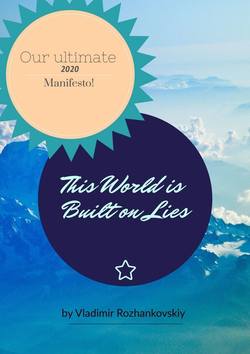Читать книгу This World is Built on Lies - Vladimir Rojankovski - Страница 5
Diplomatic Insulation vs. Diplomatic Isolation
ОглавлениеAs a result of the tit-for-tat reciprocal U.S.‘s and Russia’s diplomats expulsions in 2016, the ordinary cross-continental traveler is submerged in a sort of plague. This is a particularly useful example addressing the main theme of this book and showing how a fight of the political elites directly impacts basic rights of the ordinary people. The visa-issuance interviews now, as of the beginning of 2020, take several months of waiting time, but it’s not the whole story. Quite unpleasant things are the U.S. border customs’ increasingly stringent checkups and occasional randomly picked at-the-border interviews (I suspect this is also the case lately at the Russia’s Sheremetyevo passport control – and it does look equally ugly to me) – those kind of happenings after the 22-hour transatlantic flights, as well as the ever-widening list of prohibited items, i.e. liquids, fruits and vegetables, anything beyond the ordinary such as optics and the telescope mounts, (I remember the old days when I used to carry my multicomponent floor top stereo system to and from the JFK’s international flight terminals effortlessly with the only question ever asked of whether I planned to stay in the U.S. for longer than I declared), as well as inflation of the daily expenses (virtually undetectable for the native shoppers, but quite stingy to foreigners). All this makes the whole U.S. travel vacation story all but a challenge. For this reason, my biggest worry is that one day I won’t be able to see my dad or my mom in their final journeys.
But my circumstances are dwarfed by weight of growing suspiciousness threatening to transform into overt hostility. For example, Dennis Ortblad, a former career U.S. foreign service officer, and Krishen Mehta, a former partner with PricewaterhouseCoopers, who wrote in their November 5, 2019, The National Interest’s article that “Those who are under thirty in Russia have known the freedom of travel and access to information in their new economy. It is this younger generation that U.S. policy cannot afford to lose with a sanctions policy that encourages them to believe that the West only seeks to undermine Russia and their futures”.
Active student exchanges with the United States and Europe can help counter among the young this drift towards resentment. We found a decline of student and academic exchanges exist throughout Russia. In Irkutsk, university leaders lamented that the formerly active student exchanges with the United States had ceased. In Crimea, at Simferopol University, an academic dean explained that a traditional exchange with a large U.S. university ended because, besides sanctions, the Russophobic climate of opinion in the United States made it politically incorrect.
Despite general lack of trust toward the West, Russians (especially, Russian millennials) have adopted and frequently use countless English and American loanwords such as implement, relevant, lifehack, chat, even such food glossary words as chicken and salmon, although, naturally, there are full native language equivalents. This means the common interest to learning the English language (and Anglo-American culture in this respect), as opposed to learning of foreign geopolitical interests, has been on the rise no matter what.
Following the reciprocal closure of consulates, our Moscow embassy has been unable to meet the increased burden of visa applications. Students and academics now need to wait for months sometimes years for issuance. This needs to be corrected if we do not wish to lose the younger generations of Russians (Iranians, Cubans, Venezuelans, to name a few nations now out of favor) who can be our hopeful ambassadors for a better future. The simple diplomacy of reopening consulates on a reciprocal basis would engender confidence and relieve the log jam of visas.”
Ironically, many Russian entry visa applicants, in order to avoid visa interview jams were obliged to travel to the U.S. Consulate located as far as city of Vladivostok (distance from Moscow is about 9,000 kilometers) in order to be able to travel to New York (distance from Moscow is about 7,500 kilometers).
According to Bank of America research, there are now around 77 physical barriers that delineate international borders compared with 15 in 1989 after the fall of the Berlin Wall. The World Trade Organization recently pointed to the fact that the pace of growth in international commerce fell below the rate of economic expansion in 2019 for the fifth time since the financial crisis.
